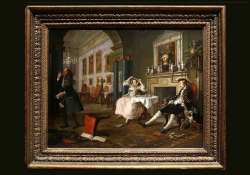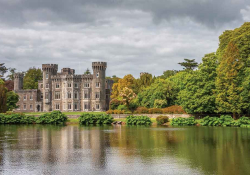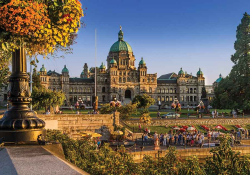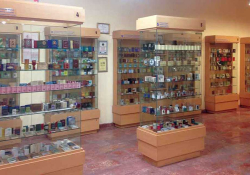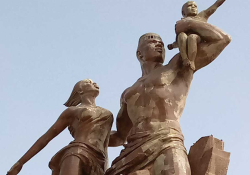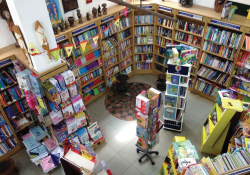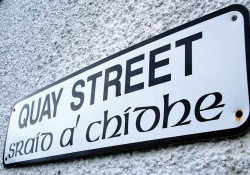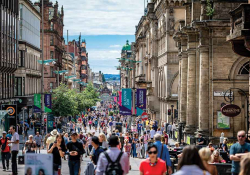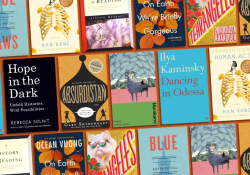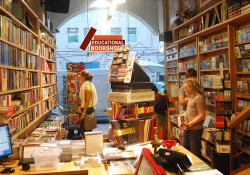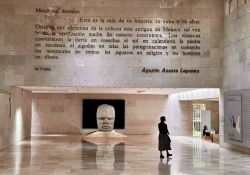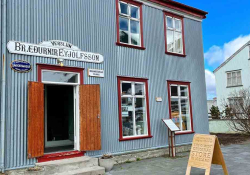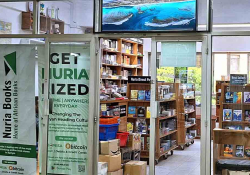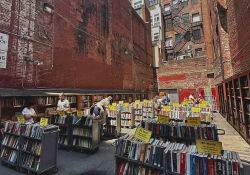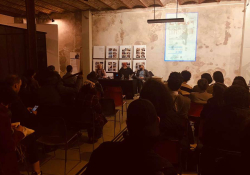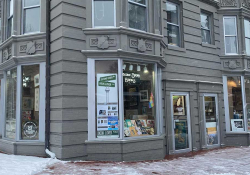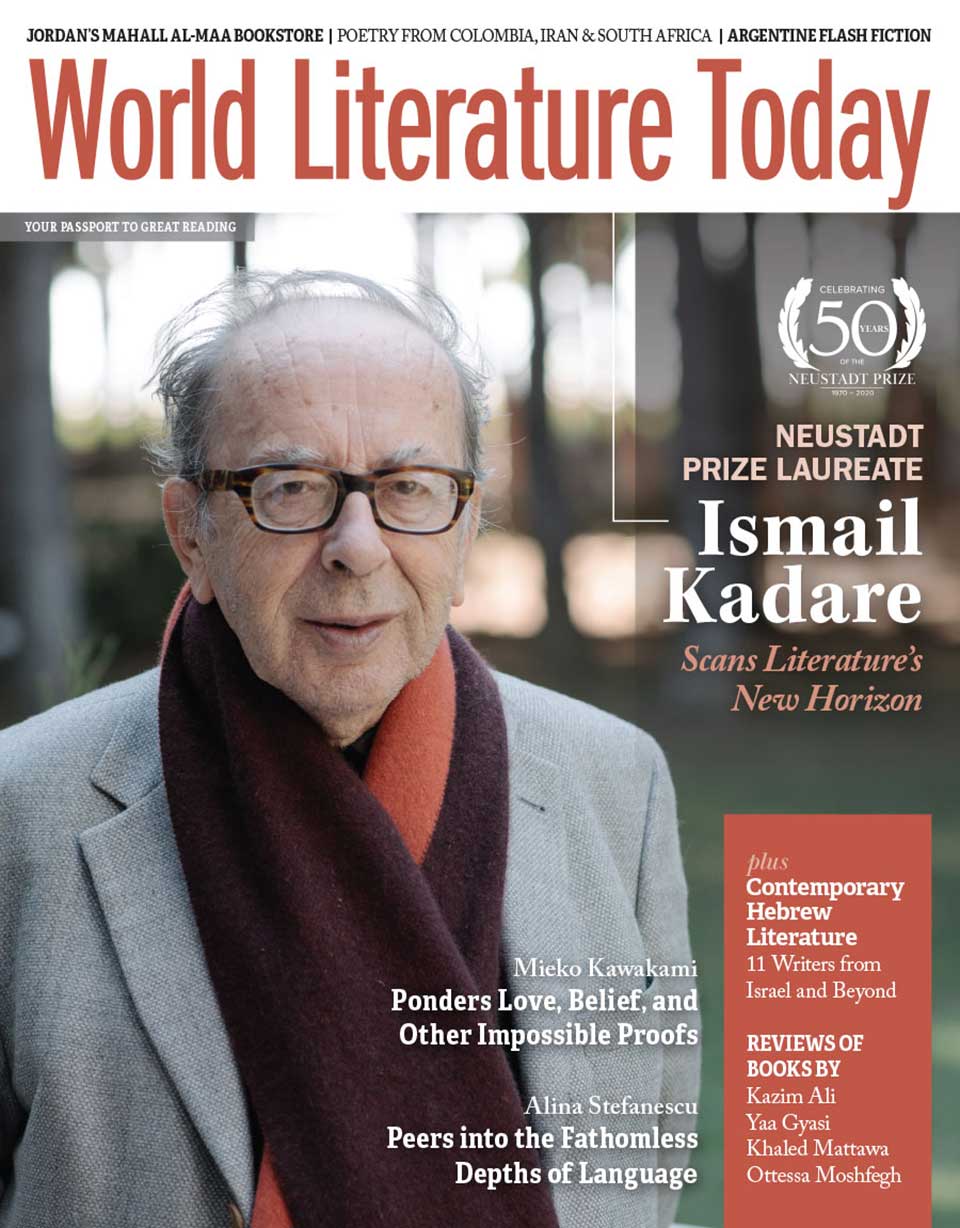Mahall al-Maa: Amman, Jordan
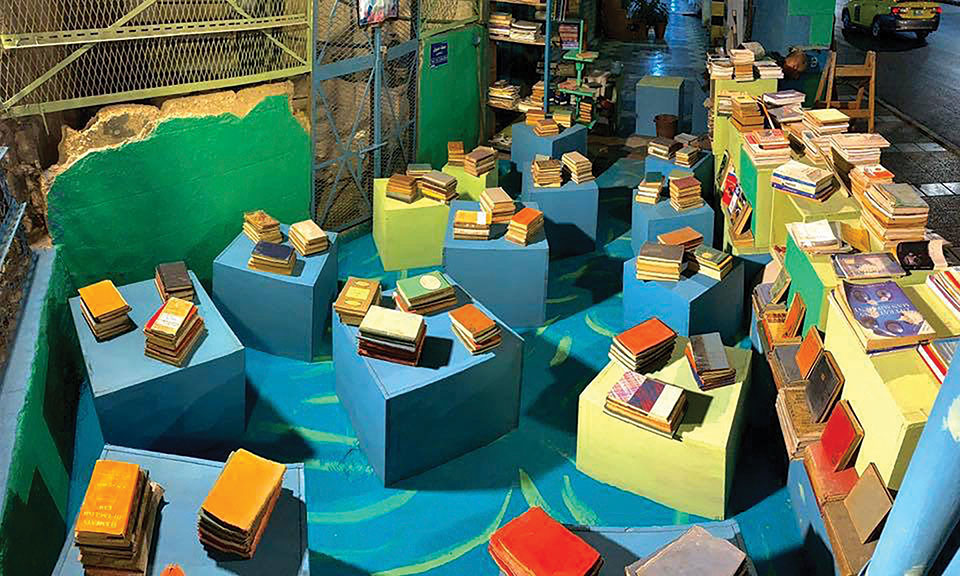
IN THE BONE-CRACKING ARIDITY of Jordan, civilizations are still born from, and borne upon, water. On the poppling wellsprings found on the hills and wadis, the foundations of the present-day capital city of Amman were laid over five thousand years ago. Though in time, the course of those ancient riverbeds changed, and the wells were roofed with asphalt, water remains a powerful symbol of the region’s lifeblood.
“Water is the origin of life, the birth of culture,” says Hamzeh al-Maaytah, a bookseller in Amman. His shop, Mahall al-Maa, or the Water Bookstore, sits across from the Roman Nymphaeum wellhead on Quraysh Street, which follows the course of the extinct Amman River. The name is more than historical callback. Mahall al-Maa was established as an oasis for the parched mind, as, for Hamzeh, “the thirst for a book is like the thirst for water.”
Bookselling is in Hamzeh’s veins. In the 1890s, his great-grandfather Salman al-Maaytah founded al-Jahith’s Treasury, a bookshop in Jerusalem. Salman’s son Khalil would later buy the libraries of departing British officials, gaining a massive inventory of books in French, German, Spanish, and English that still fills Hamzeh’s collection. In the 1940s, war caused Hamzeh’s father, Mamdouh Al-Maaytah, to move the business to Amman. Well into the 2010s, al-Jahith’s Treasury, run by Hamzeh’s brother Hisham, became a staple of both the local and vacationing readership.
After Mahall al-Maa’s opening in 2017, Hamzeh enjoyed similar success, thanks in part due to his efforts on social media, including maintaining an active Facebook page. While a back catalog of over ten thousand books ensured there was always something for everyone, it was Hamzeh’s palpable enthusiasm that made him popular. “Books are only alive when we read them,” he says, thumping a dusty paperback. “Only then do we salute the author and hear him speak.” On principle, he doesn’t let money impede anyone’s access to reading. Al-Maa’s motto of “take a book and read, pay any price you please,” is an astonishing offer considering his antiquated collection, one that makes him the darling of collectors, book fairs, and libraries.
Alas, no amount of generosity can defend against bad luck. In 2018 fire destroyed al-Jahith’s Treasury, and Hisham was killed soon after in an accident. Then in early 2019, flash floods swept through Amman. Quraysh Street was inundated, and many of Mahall al-Maa’s books were water-damaged. Hamzeh immediately set to work, beginning a “Revival of Books,” painstakingly creating new covers by hand to replace those damaged in the flood. His refurbished covers became part of a 2020 art exhibition curated by Jordan’s MMAG Foundation for Art & Culture.
Today, Mahall al-Maa is struggling to continue, but Hamzeh remains optimistic about the future. “When the Romans settled in Amman,” he says, “they renamed the city Philadelphia. It is the original city of brotherly love.” It’s a dictum Hamzeh takes to heart. “With each book revived, I work to preserve the human and cognitive heritage, to restore the prestige of the sources of knowledge,” Hamzeh says. An onerous task, but one he accepts humbly. Like Coetzee’s Michael K, he knows that even a teaspoon dipped into a well will draw up the water of life. “To preserve bookstores around the world is to stay alive,” Hamzeh says. “A book in every home makes it first a place of teaching, then a place of understanding.”

